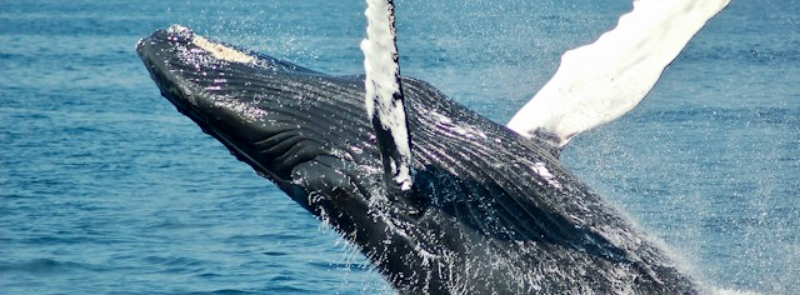
When It Occurs
Annually Third Sunday in February
Timeline
Days Passed (735)
# Hashtags
#WorldWhaleDay #MarineLife
Observed annually on the third Sunday in February, World Whale Day is dedicated to acknowledging the significance of these marine creatures in the ecosystem. This day not only celebrates whales but also highlights the human-induced challenges that have emerged, making life difficult for marine species.
Origin and History
- Establishment: World Whale Day was first celebrated in 1980. It was founded by the Pacific Whale Foundation in Maui, Hawaii.
- Purpose: The day was created to honor the majestic humpback whales that migrate to the waters off Maui each winter. It aims to raise awareness about the plight of whales and promote efforts to protect these magnificent marine mammals.
Date
- Observation: World Whale Day is celebrated on the third Sunday in February each year.
Significance
- Awareness: The day helps to educate the public about the various species of whales, their behaviors, and the critical role they play in marine ecosystems.
- Conservation: It highlights the threats whales face, such as hunting, entanglement in fishing gear, ship strikes, habitat loss, climate change, and pollution, and promotes efforts to protect and conserve whale populations.
- Celebration of Whales: World Whale Day is a celebration of the beauty and importance of whales, fostering a connection between humans and these incredible creatures.
Key Themes and Focus Areas
- Species Protection: Emphasis on protecting endangered whale species and ensuring their habitats are safeguarded.
- Marine Conservation: Promoting the conservation of marine environments that are crucial for the survival of whale populations.
- Research and Education: Supporting scientific research on whales and their habitats, and educating the public about findings to foster greater understanding and appreciation.
- Policy and Advocacy: Encouraging policies and regulations that protect whales from threats such as commercial whaling, bycatch, and marine pollution.
Activities and Events
- Parades and Festivals: Various communities, especially in regions where whales are commonly sighted, host parades, festivals, and events to celebrate World Whale Day. These events often feature music, educational exhibits, and activities for all ages.
- Whale Watching Tours: Eco-tourism operators may offer special whale-watching tours to give people the chance to see whales in their natural habitat and learn about their behaviors and the importance of conservation.
- Educational Workshops: Workshops and seminars conducted by marine biologists and conservationists to educate the public about whale biology, conservation efforts, and the challenges these animals face.
- Fundraising Events: Fundraising activities to support whale conservation organizations and research initiatives. This can include charity runs, auctions, and donation drives.
- Beach Clean-ups: Organized beach clean-up events to reduce marine pollution and protect the habitats of whales and other marine life.
How to Get Involved
- Spread Awareness: Use social media platforms to share information about World Whale Day, including facts about whales, threats to their survival, and conservation efforts. Hashtags like #WorldWhaleDay and #SaveTheWhales can help spread the message.
- Support Conservation Organizations: Donate to or volunteer with organizations dedicated to the protection and study of whales and marine environments. This support can help fund important research and conservation projects.
- Advocate for Policy Change: Engage with policymakers and advocate for stronger protections for whales, such as banning commercial whaling, reducing ship speeds in whale habitats, and implementing marine protected areas.
- Participate in Local Events: Attend local events and activities celebrating World Whale Day. This can include festivals, whale watching tours, and educational workshops.
- Adopt Sustainable Practices: Reduce your impact on the oceans by adopting sustainable practices, such as reducing plastic use, supporting sustainable seafood, and minimizing your carbon footprint.
Impact and Legacy
- Increased Awareness: World Whale Day has significantly increased public awareness about whales and the importance of marine conservation.
- Policy Improvements: The observance has contributed to the implementation of stronger policies and regulations aimed at protecting whale populations and their habitats.
- Conservation Successes: Efforts associated with World Whale Day have supported numerous conservation initiatives, leading to successful protection measures for various whale species and their environments.
Conclusion
World Whale Day is a crucial observance dedicated to celebrating whales and promoting their conservation. Through education, advocacy, and community engagement, the day helps to raise awareness about the threats whales face and the actions needed to protect them. By participating in World Whale Day, individuals and organizations can contribute to global efforts to ensure the survival and well-being of these remarkable marine mammals and the ecosystems they inhabit.


